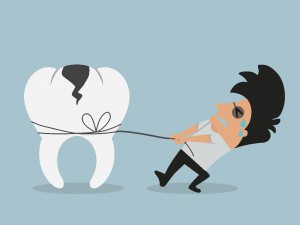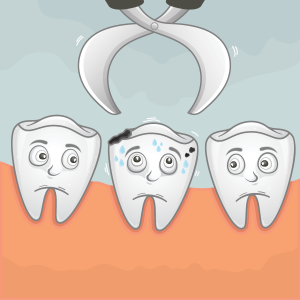The following information is provided as a general overview of general anesthesia services available in our office.
What is general anesthesia?
General anesthesia is the state of pharmacologically induced “sleep”. When you are told that someone will need to be “asleep” for a procedure, often surgical, this is a reference to being placed under general anesthesia. The aim of general anesthesia administration is to provide a lack of sensation and to ensure amnesia (no memory) and analgesia (no pain).
When and why is general anesthesia used in this office?
General anesthesia may be recommended for a person for several reasons. Most commonly in our pediatric dental office, general anesthesia is recommended when a child is very young, very fearful, uncooperative or has special circumstances that will not allow them to cooperate for needed treatment. Often, when general anesthesia is recommended, there is a large amount of dental treatment needed or the procedure is too long or uncomfortable to be tolerated by the patient in an awake state.

It is our goal to provide safe, excellent care (in that order) and to provide a non-traumatic experience for our patients. Sometimes, this is only possible through the use of general anesthesia.
Who provides general anesthesia in our office?
General anesthesia in our office is provided either by Dr. Christine Quinn or Dr. Yvonne Rochon. Both of these professinals are highly trained in the field of outpatient dental anesthesia. Both doctors are happy to answer any questions you might have about outpatient general anesthesia.
What are the eating restrictions prior to general anesthesia?
The patient that is to receive general anesthesia for an elective procedure must follow the American Society of Anesthesiologists guidelines for pre-operative fasting. No food maybe eaten for eight hours prior to the anesthesia time. Clear liquids (water, apple juice) may be consumed up to two hours prior to the time of anesthesia. If there is a doubt as to whether something is a clear liquid or not, it is better to withhold it to avoid cancellation of the procedure. Breast milk may be consumed up until four hours prior to the procedure. It is extremely important to follow these guidelines to avoid unnecessary cancellation of the procedure.
How safe is general anesthesia?
General anesthesia is commonly employed in the outpatient environment. It is used frequently in most pediatric dental offices to treat specific types of patients. Outpatient general anesthesia is considered very safe and has an excellent safety record in the pediatric dental office when administered by qualified and experienced providers. There are risks inherent in every type of procedure including anesthesia but these risks are minimal with appropriate patients and highly trained providers.
General anesthesia has been administered in our office for more than twenty years on a very regular basis. Because of careful monitoring, vigilance and highly trained professionals, we have enjoyed over 20 years of good outcomes.
Have you ever had a death or permanent disability result from sedation in your office?
No. As mentioned above, the administration of any kind of sedation in our office is permitted by only highly trained and qualified dental anesthesiologists with a mandatory amount of training and experience. We take any type of sedation very seriously and safety is our top priority.

Is there any alternative to general anesthesia?
Alternatives to general anesthesia are 1)no sedation 2)conscious sedation 3)deep sedation. General anesthesia is only recommended in our office when it is deemed the most appropriate option having included consideration of the above three alternatives. The decision to recommend sedation with general anesthesia for a child in our office is not taken lightly. We understand and support parents’ great concern for their child when general anesthesia is recommended as the best option for success. We use three main criteria when deciding the best route of providing treatment for a child. These three criteria in order of importance are 1)safety of the child, doctors and the care team 2)the quality of treatment rendered 3)the experience of the child. Our goal is ALWAYS to provide a safe visit in which the best quality care can be provided in the least traumatic fashion possible. The restraint of a child during any potentially uncomfortable procedure is not in keeping with our practice philosophy. We will not employee the use of restraint devices for care of any child.
Does my child HAVE to have general anesthesia for their care?
Emphatically NO! Only a parent or guardian can decide if their child MUST receive care utilizing the method of general anesthesia. Drs. Ruby and Rochon respect the rights of a parent or guardian to decide this for their child. Our goal is to support parents in making the best decision for their child. Sometimes the wishes and desires of a parent or guardian to avoid general anesthesia may conflict with Dr. Ruby and Dr. Rochon’s ability to successfully meet their criteria in treating a child (safety, quality of care, least traumatic method of treatment for the child, most positive experience possible). In these cases, families will be encouraged to find a dental home that may be willing to pursue another avenue or approach to treatment which differs from the philosophy of this practice.
If you have additional questions about general anesthesia, feel free to contact our office.
